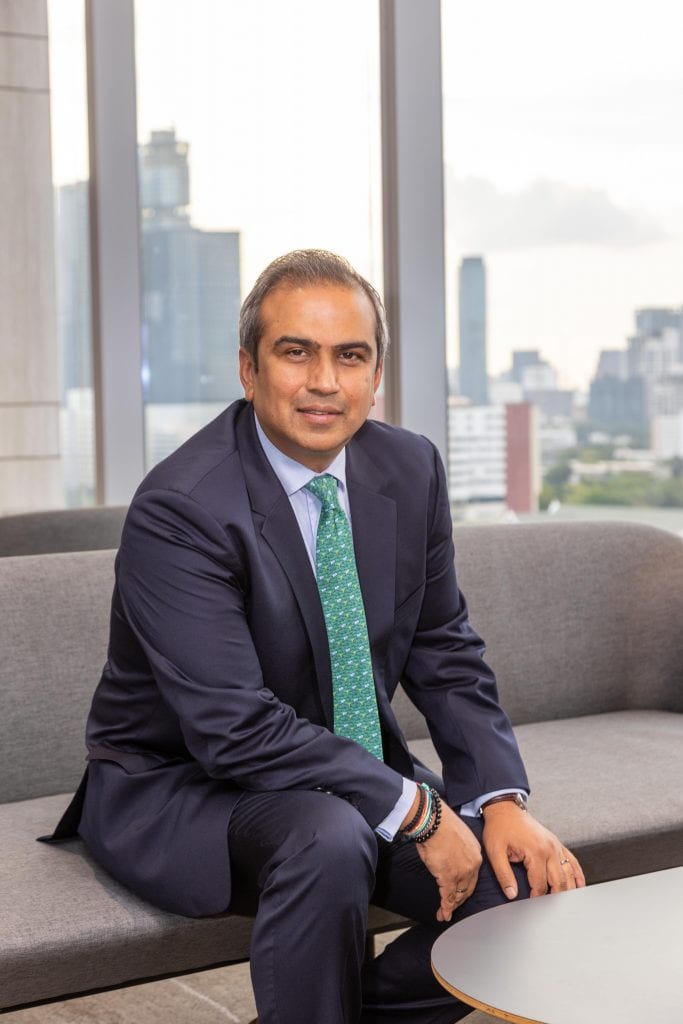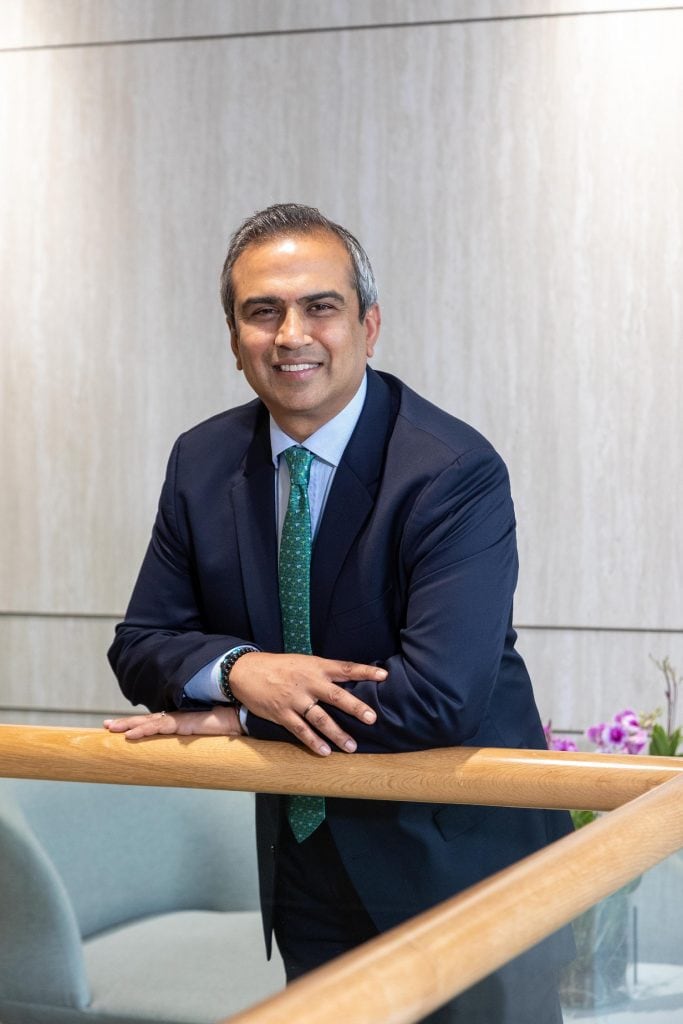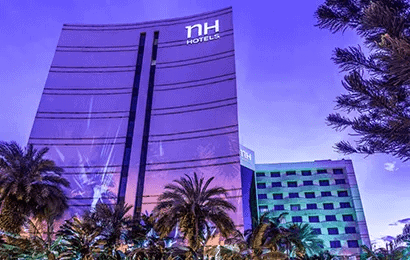Puneet Dhawan, Head of Asia, Minor Hotels in an exclusive interview with Kamal Gill, Editor-Publisher, of Today’s Traveller shares his plans for further expansion in the South-Asian market.
With an ambitious goal to nearly double its portfolio to over 1,000 properties globally within five years, Minor Hotels is setting the stage for transformative growth. Leading this charge in Asia is Puneet Dhawan, whose recent appointment as Head of Asia marks a pivotal moment for the group.

From expanding into high-potential markets like China and India to introducing new midscale and luxury brands across Southeast Asia, Dhawan’s strategic roadmap is as bold as it is thoughtful. His focus extends beyond growth; it includes fostering immersive guest experiences, promoting sustainable practices, and supporting local communities.
Under Dhawan’s leadership, Minor Hotels aims to redefine luxury and experiential travel in the region. With innovative offerings like wellness retreats, heritage restorations, and slow travel initiatives, Dhawan is steering the company towards creating lasting value for both guests and destinations alike.
With your recent appointment as Head of Asia in Minor Hotels, what are the key areas you aim to focus on to strengthen Minor Hotel’s market presence?
Puneet Dhawan: It’s an exciting time to join Minor Hotels as we plan to nearly double our portfolio to over 1,000 properties worldwide within the next five years. In Asia alone, for 2025, we have 10 new openings currently scheduled with the aim to add an additional 100 hotels and resorts by the end of 2026.
There are several ways we are increasing our current portfolio. First, we will continue expanding into high-potential markets like China and India, capitalising on their large consumer base and robust growth prospects. Thailand remains a strong focus in Southeast Asia, while we are also looking to expand our footprint in Vietnam, Indonesia and Malaysia. We are also exploring entering new markets throughout the region such as Japan and the Philippines.
Our strategy has been to focus on cross-developing our eight hotel brands across our global portfolio. In the past year, we launched more NH and NH Collection-branded properties in Asia, outside the brands’ stronghold in Europe and the Americas. This shift is significant for Minor: while we’ve historically concentrated on the luxury and lifestyle segments in Asia, we now see substantial opportunities in the midscale and upscale sectors. As a result, we anticipate brands like NH will experience rapid growth in these markets.
We recently opened two ‘firsts’ in our home market of Thailand, with the first NH Hotels & Resort property in Bangkok – NH Bangkok Sukhumvit Boulevard Hotel – and the first NH Collection resort on Koh Samui – NH Collection Samui Peace Resort. These properties joined two NH and NH Collection openings in Sri Lanka and one in the Maldives earlier this year. We will continue to leverage our brand portfolio and expand our brand offering with new additions in the coming years to address unmet owner and guest needs.
Throughout Asia, we are enhancing the guest journey by emphasising immersive, experiential travel. Across Southeast Asia, we offer travellers various methods of ‘slow travel’ to experience the beauty of the respective countries. This year, we expanded The Vietage by Anantara service to include journeys from Quy Nhon to Nha Trang in Vietnam and launched a new river cruise in Laos with Mekong Kingdoms called Boheme. We also expanded in the holistic wellness sector by introducing Layan Life by Anantara. This one-of-its-kind offering in Phuket blends modern wellness techniques with traditional Thai medicine to help people throughout their various stages of life.

Minor Hotels is beginning to expand its footprint in India. Can you discuss upcoming plans for new properties Minor Hotels might introduce to the Indian market?
Puneet Dhawan: Earlier this year, we announced our target of 50 new openings in India within the next 10 years. We currently have two properties in India following the opening of Anantara Jewel Bagh Jaipur Hotel, which had its soft opening in November, and Oaks Bodhgaya Hotel. We are in various stages of discussions with partners across the country and are excited by the overwhelming interest in our brands from property owners in India.
India has many untapped tourism hotspots and the ability to create new destinations that appeal to domestic and international tourists. For Minor Hotels, the art of destination creation has always been central to our global strategy, and we believe it will be essential to our success in India.

While having a presence in major metros matters, we will focus on emerging destinations with demand for premium and luxury hospitality with our Anantara, Avani and NH Collection brands. In urban locations, there are many up-and-coming cities, especially in Southern India, thanks in part to airlines increasing domestic and international connectivity and infrastructure investments. There are also tier two and tier three cities that could be a fit for our select NH Hotels & Resorts brand.
We are not limiting ourselves to cities, either. Our Anantara brand is well-suited for luxury resorts, wellness retreats and wilderness lodges in places like the southern hill towns and the northern Himalayas.
As part of our ‘asset-right’ strategy, our expansion in India will be driven by a mix of owned/leased properties, HMAs and franchise agreements.
What initiatives is Minor Hotels considering to promote environmental sustainability and social responsibility in its South Asia operations?
Puneet Dhawan: As we enter new markets like India, our first priority is to lay a solid sustainability foundation by implementing our global best practices from day one. We then look to hyper-localise these efforts to reflect and support the surrounding community, environment, and cultural traditions.
A compelling example of this approach in South Asia can be seen in Sri Lanka, where Anantara Peace Haven Tangalle Resort has embraced ambitious environmental initiatives tailored to its local ecosystem and recently became one of just 30 Minor properties to receive the prestigious Green Growth 2050 Platinum certification. The resort converted nearly 90,000 sqm of land into a chemical-free zone, fostering habitats that support sensitive indigenous species, while also partnering with Sri Lanka’s Department of Wildlife Conservation to establish the Rekawa Turtle Sanctuary, which has successfully safeguarded more than 11,000 baby turtles.
Such endeavours in Sri Lanka serve as a blueprint for our expansion in India. For example, at our Anantara Jewel Bagh Jaipur, we are exploring ways to highlight the region’s artisanal heritage and integrate local crafts into the property experience, infuing the hotel experience with local culture while also supporting local craftspeople.
Similarly, we intend to adapt brand-wide sustainability programs like the Dollar For Deeds CSR initiative and Green Growth 2050 benchmarks to the Indian context, ensuring that each property not only meets global standards but also contributes meaningfully to its local environment and community. Over time, these efforts will help us cultivate authentic guest experiences rooted in both ecological stewardship and cultural integrity.
At the group level, Minor Hotels has also committed to becoming a net-zero organisation by 2050 and set intermediate goals of reducing energy and water intensities and carbon dioxide emissions.
What do you see as the biggest challenges and opportunities in the hospitality sector in South Asia, and how are Minor Hotels positioned to address these?
Puneet Dhawan: India has a significant gap in experiential luxury properties despite its incredible heritage and cultural richness. We see an opportunity to fill this void by introducing world-class luxury experiences that celebrate the country’s history, such as restoring and reimagining legacy properties like forts and palaces. Anantara, with its expertise in blending heritage with contemporary luxury, is perfectly poised to take these assets to a global stage while preserving their authenticity.
Simultaneously, the country’s youthful demographic, with a median age of around 30, signals a growing appetite for lifestyle-focused, vibrant hospitality experiences. Avani, with its “fun and funky” approach, is well-suited to cater to this emerging segment, offering dynamic spaces that resonate with a younger audience.
India’s deep connection to wellness and wellbeing, as the birthplace of Ayurveda, further presents an unparalleled opportunity. Minor Hotels’ renowned wellness offerings, exemplified by the globally recognised Anantara Spa, align naturally with this tradition, creating spaces where guests can connect with holistic practices in their land of origin.
The country’s vast wildlife potential is another area ripe for development. Drawing on our success with the Elewana Collection in Africa, as well as Anantara and Avani’s growing footprint in nature-focused destinations, Minor Hotels is uniquely equipped to craft immersive wildlife experiences that balance luxury with conservation.
Lastly, as Indian hotel owners become increasingly sophisticated, they seek partners who understand the local context rather than imposing rigid, standardised frameworks. Minor Hotels’ philosophy of “thinking global, speaking local” ensures we can meet these evolving expectations, offering flexibility and cultural alignment that sets us apart.
Read more: Today’s Traveller Interviews




1 Comment